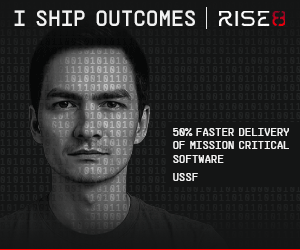Robins Air Force Base, Ga., has completed two environmental reviews, clearing the way for new construction to support the bases four new missions sets, which will replace the E-8 Joint STARS mission that has defined the base for decades.
Cyber

 ADVERTISEMENT
ADVERTISEMENTCyber
A collection of air power, space power, and national security quotes.
Air Force leaders today are making significant decisions about the future force, betting on the promise of autonomous collaborative combat aircraft (CCA) as a means to increase the Air Force’s combat capacity.
The Government Accountability Office found significant deficiencies in the Department of Defense's cyber incident reporting practices, deficiencies the GAO said prevent DOD from fully understanding and preventing cyber breaches, according to a report to Congress. The GAO also said DOD lacks appropriate practices for notifying ...
Air Force Strength now 'very weak';TRANSOM unveils agile strategy to deter China.
The Space Force does not fully understand its cyber threats, and cybersecurity is an overlooked vulnerability of space operations, said Lt. Gen. Stephen N. Whiting, head of Space Operations Command. "We don't yet have the intuitive understanding to say, based on the threat that we're ...
Lt. Gen. James C. Slife was set to transition from his role commanding Air Force Special Operations Command at Hurlburt Field, Fla., at the beginning of October, with a likely assignment to the Pentagon next. He visited the Air & Space Forces Association in September ...
The Air Force and Space Force are trying to make service members' lives easier. According to leaders, new information technology and human resource practices seek to ensure service members can be more effective in accomplishing their mission and have a better day-to-day experience.
The United States is unprepared for a wartime fight with a peer adversary in the space and cyber domains, top U.S. generals said at AFA's Air, Space & Cyber Conference. "The answer is no, we're not ready," Lt. Gen. Leah G. Lauderback, Air Force deputy ...


